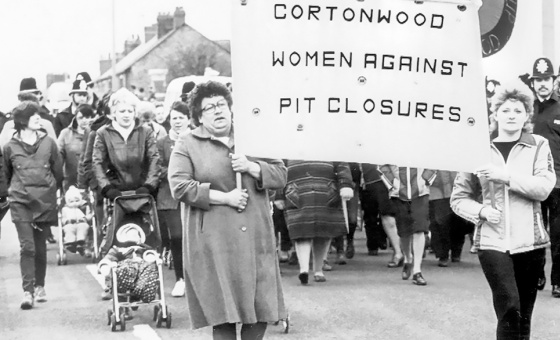This is the last article you can read this month
You can read more article this month
You can read more articles this month
Sorry your limit is up for this month
Reset on:
Please help support the Morning Star by subscribing here
IF THERE’S something I want to read I take the train to work, as reading while perched on a bike still hasn’t reached mainstream acceptance.
It’s a dreary, privatised train, often cancelled at the last minute but, when it turns up, I like to stand and watch the commuters around me. Not in a creepy way, you understand. I’m just interested in how they’re passing the 60-80 minutes each day they spend commuting.
Travel research tells us that the ideal commute time is 16 minutes, door-to-door. Our urban journeys meet all kinds of psychological needs. One transport engineer, Patricia Mokharian from the University of California, compared commuting to the Odyssey: “The commute can be this heroic going out into the world, conquering the traffic, surviving, and coming home to the warm reception of family.”
That analogy perhaps works for the rugged individualism of the US psyche. But here in Britain, it feels more like an Alan Bennett play — banal, but riddled with bathetic moments.
I started to wonder what, if anything, an average London commute could tell us about the state of culture. So I left my bike in the shed, put the book back on the shelf, and spent a morning watching.
Twenty years ago, most commuters would have been reading. The city gents would have been clutching their Daily Telegraphs and harrumphing over a world gone wrong. There’d have been a fair few tabloids too and a decent smattering of paperback novels. Maybe the occasional Game Boy, loaded with Tetris.
There are 30 people stuffed into one section of this suburban rail car. The rules, as ever, are set. No-one makes eye contact, except in the most desperate of situations, like if you’ve accidentally stood on someone’s foot. Instead, the rule — even when crammed into some unholy corner — is to act as though this is what you wanted all along.
No-one is allowed to speak, save for the plaintive man on the platform at Herne Hill. His role is to not get on the train.
The doors open. There is no space. His voice rings out: “Can you move down a bit please?” No-one speaks. There is the occasional, barely perceptible tut. We move on.
Most of the people in my bit of the train — my kingdom of dust — are on their phones. This is not a surprise. We are all on our phones, all the time. Phones have eaten us.
Most people on their phones in this compartment are trying to connect in some way. Some of them are communicating actively — texting, WhatsApping, Facebook messaging. Some are more passive. A man scrolls through his online wall, which alternates between aspirational body-building slogans and pictures of women in a state of undress. He “likes” the latter.
A women in her late thirties agonises over sending a tweet. It takes her 10 minutes of writing and rewriting, interspersed with distracted trawls through other social media feeds, to get it right. Finally, she hits send.
“Detox going well before this weekend’s yoga retreat! #challenge #livewell #content”. #Content — a buzzword for the current age.
Finally, there’s a man lucky enough to have a seat. He has his laptop open and is watching a Jason Bourne film. Matt Damon’s taciturn avenger has no time for words, only action. Assorted things explode but the man doesn’t notice. He’s on Instagram.
I don’t say any of the above from a position of sneering superiority. I’m as susceptible to the dead-eyed phone trance as anyone else.
But it feels like curating our online personas has become a full-time job in itself — futile app admin for an endless dopamine rush.
And with virtual reality on the horizon, I’m not quite sure I like where we’re heading.








